The NOVA Partnership Quarterly Newsletter June 2025
The NOVA Partnership Newsletter is your exclusive access to the latest updates in consumer and sensory research from NOVA, the dedicated tech innovation team at MMR Research Worldwide

The NOVA team
23 Jun, 2025 | 7 minutes
TOP STORIES
MMR Research-Huxly in Partnership with Yorkshire Tea is a Finalist for the AURA Innovation of the Year Award
We’ve developed a multidisciplinary creative problem-solving approach, exclusive to MMR Huxly, that empowers clients to deliver intentional innovation with real impact. By combining the expertise of sensory experience specialists, cultural semioticians, and behavioural scientists, this method offers a unique, expert-led assessment of sensory cues within cultural contexts.
It’s this fusion of disciplines that enables us to translate deep sensory and semiotic understanding into actionable design and development briefs, bridging the gap between insight and execution. Clients can move from abstract business goals to tangible, high-impact solutions with greater speed and confidence.
Whether you're looking to premiumise a product, explore new category spaces, or accelerate innovation cycles, this approach delivers high-impact, culturally resonant solutions that inspire confidence and drive growth.
The winners are to be announced on 17th July 2025.
If you're curious about how this approach could elevate your next product experience innovation, drop us a line.
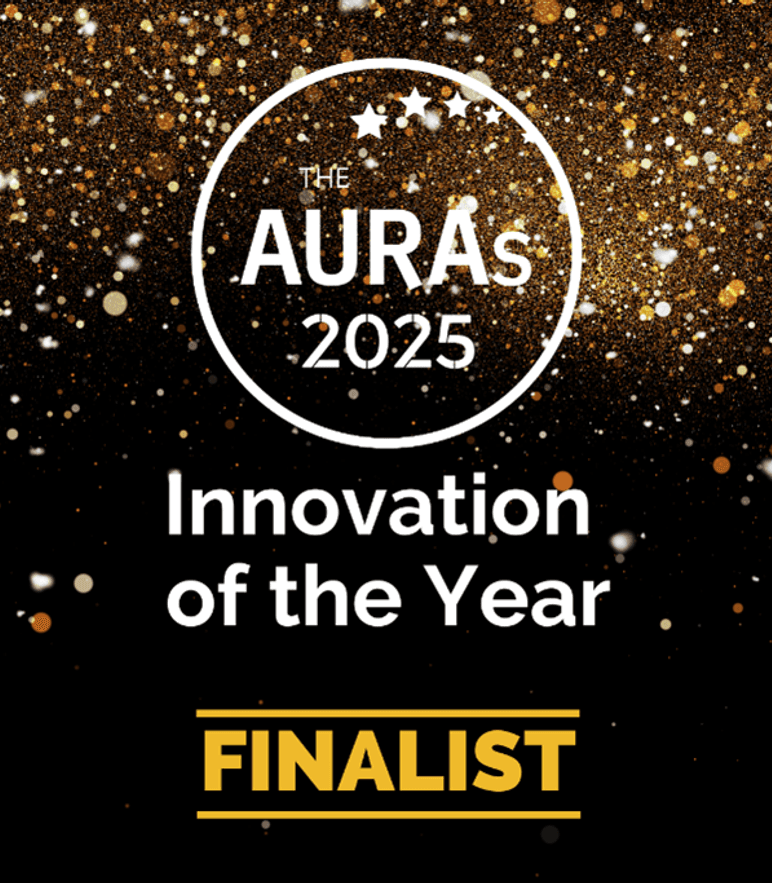
Curious about what made us stand out? Check out the video below, which showcases our method in detail.

Synthetic Data to Boost Quant Base Sizes: Use with Care
Synthetic data is a hot topic, but when it comes to boosting small quant base sizes, MMR urges caution. While technically possible, synthetically inflating sample sizes doesn’t really increase confidence in results, it simply fills gaps based on the original data. Therefore, confidence all boils down to how representative the initial sample is, and if it is small, then it is at increased risk of being biased. This is especially risky in product testing, where we know there are underlying sensory preferences that are hard to target or quota, therefore, with small sample sizes, there is an increased risk of misrepresenting these preferences.
We’re leveraging the expertise of our Data Sciences team to ensure that our own synthetic capabilities are tailored to support the nuances of product testing, whilst in parallel helping to establish guardrails for the use of synthetic data. We’d love to explore scenarios and solutions with our clients, and to advise on when to use synthetic data – and when not to.
NewMR Webinar: Signals from the Future: Emerging Methods in Product Experience Insights
NOVA’s Alexandra Kuzmina joined Ray Poynter’s NewMR webinar with a presentation on Signals from the Future: Emerging Methods in Product Experience Insights.
This session explores how product experience insights can embed future thinking to stay ahead of profound shifts in technology and human behaviour. From voice-enabled chatbot surveys and virtual moderators to AI Personas enriched with dynamic data, emerging tools are reshaping how we engage consumers and leverage insights. By spotting signals of change and imagining plausible futures, we can prepare for disruption and uncover new opportunities for growth and innovation. Tune in to the recording of this eye opening session.
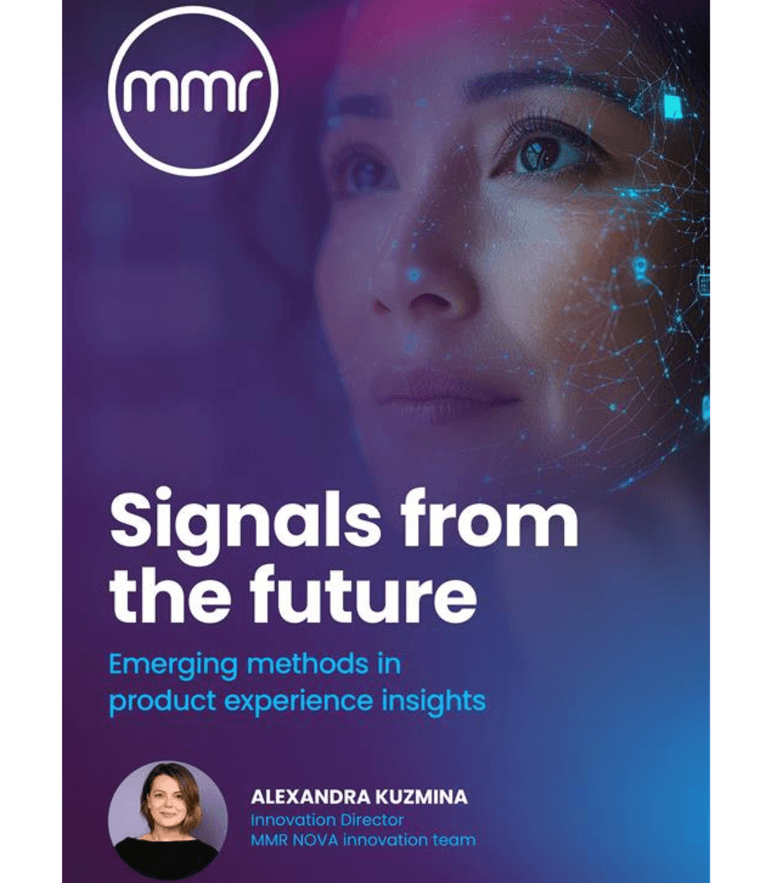
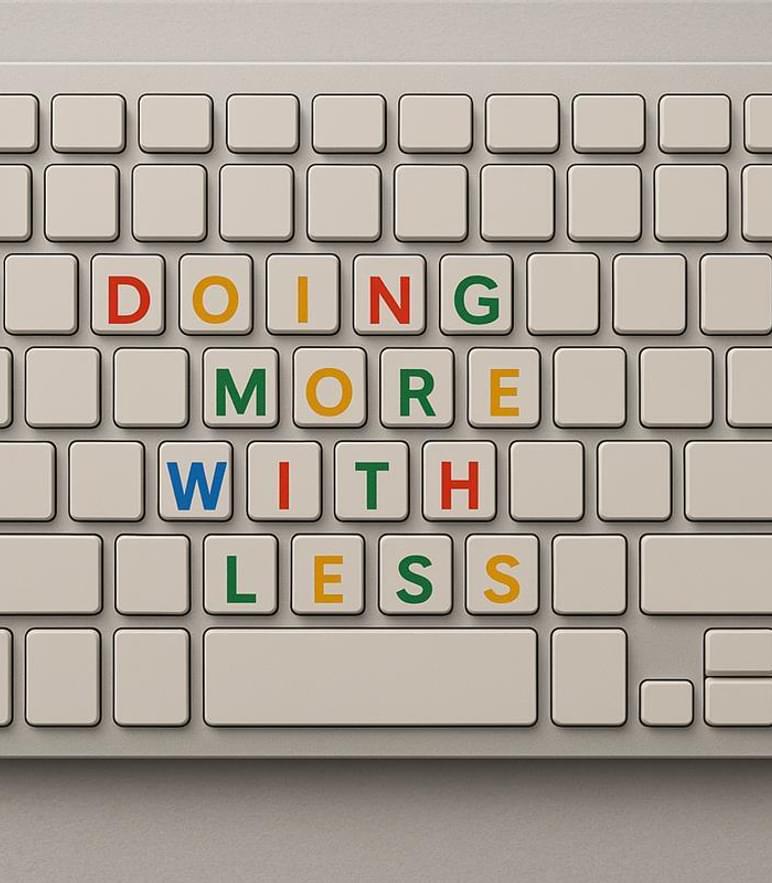
Doing More with Less: What Clients Can Take from the Latest in Research Tech
In today’s climate of tighter budgets and rising expectations, insight teams are being asked to deliver more: faster, smarter, and with greater impact. Recent developments in research technology are showing that this challenge is also an opportunity to rethink how we work.
Read on for key takeaways from a recent industry event exploring how research tech is evolving.
OTHER NEWS
Headed to Pangborn this August? Here’s What We’re Bringing in 2025.
NOVA will be on the ground at this year’s 16th Pangborn Sensory Science Symposium in Philadelphia, where we’ll be showcasing bold new approaches that reflect the future of sensory and consumer research. From AI-powered innovation to inclusive panel methodologies, our work is designed to spark conversations and action.
Here’s what to expect:
Oral Presentations
• AI-driven sensory research: Bridging the gap in product experience research with Sensory Bot
Presented by Caitlin McLean, Head of Qualitative Solutions (Americas)
• An essential new paradigm for product development
Presented by Prof. David Thomson, Founder & Chairman
Posters
• Understanding Alcohol Perception in a Non-alcoholic Context Using a Long-term Consumer Community (in collaboration with Diageo)
• Relating Sensory and Consumer Perceptions: A Study on Bitterness and Sweetness (in collaboration with Haleon)
• Agile sensory evaluation: Leveraging the Women of Color panel for critical skincare insights (in collaboration with L'Oréal)
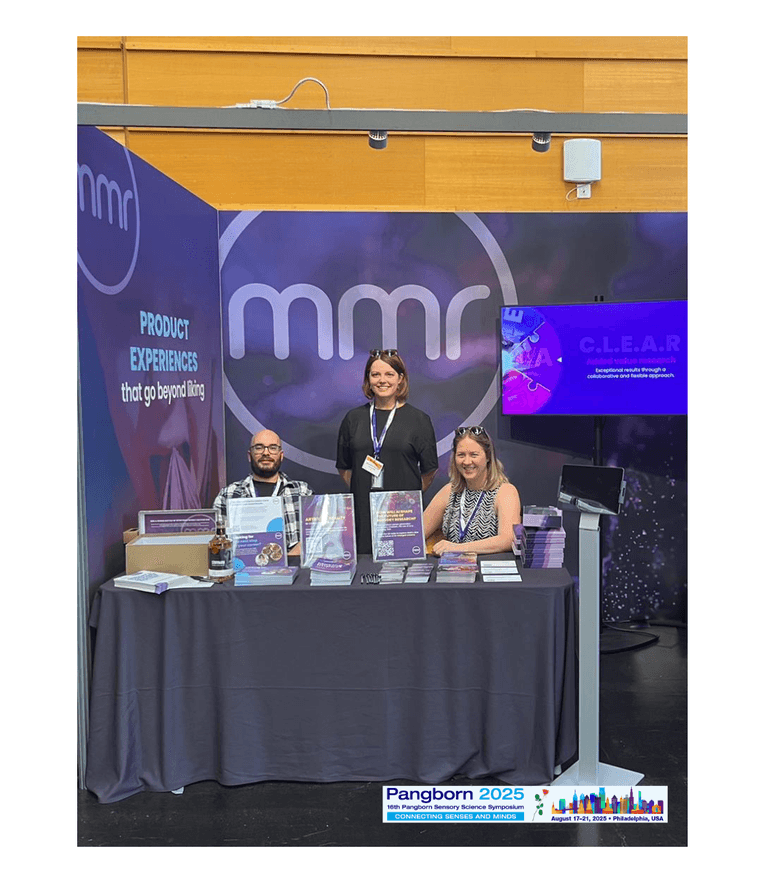
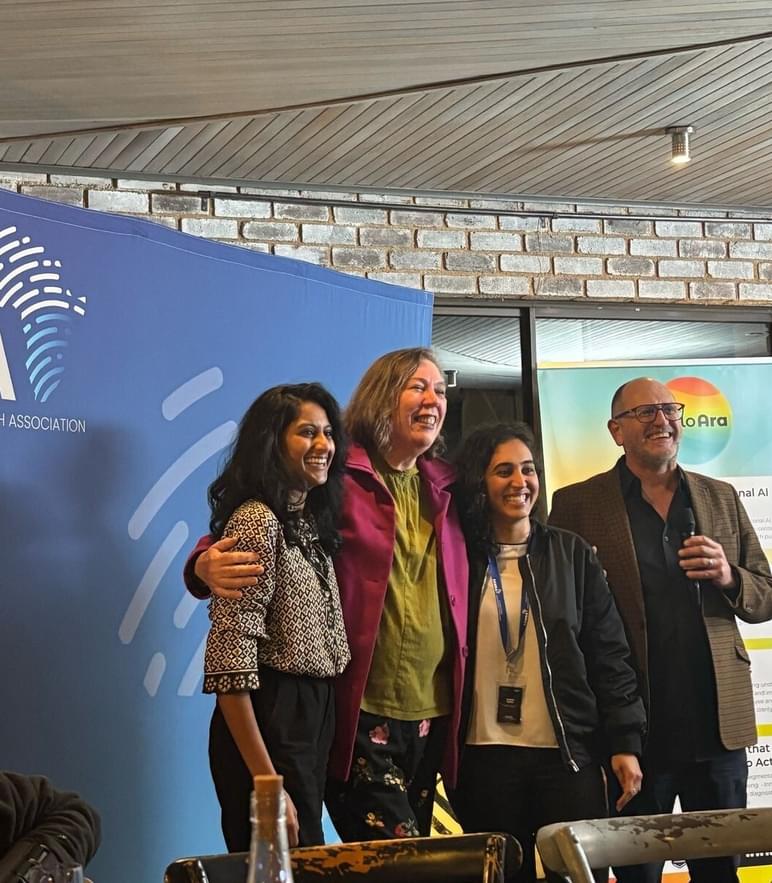
SAMRA success: Award-Winning Thinking from South Africa
At a recent industry event in South Africa, MMR’s Sensory Qual team took home the Bronze Award for Best Paper, twice.
In one session, Jacqui Horsley and Shreya Naidu explored how Generative AI can act as a strategic partner in product design, helping brands move beyond blunt KPIs to create more intentional, human-centred product experiences across every touchpoint.
In another, Harshita Mullick and Shreya Naidu shared how culturally crafted innovation is reshaping the haircare category in South Africa. Their work showed how brands can move from a one-size-fits-all approach to building more meaningful, culturally fluent connections with consumers.
Both talks sparked real interest, and for good reason. If you're exploring how to embed cultural relevance into product experiences or want to understand how AI can elevate your innovation strategy, we’d love to connect.
Responsible AI: Power with Principles
At MMR, we’re excited about what AI can do, but we’re just as serious about how it’s done. As we explore new ways to unlock efficiency, deepen consumer closeness, and elevate insight, we’ve put strong foundations in place to ensure AI is used responsibly across everything we do.
That means rigorous vetting of AI tools, clear guardrails for how they’re applied, and a dedicated AI Governance function to keep us (and our clients) on the right side of innovation. Because when it comes to AI, it’s not just about moving fast, it’s about moving smart, with trust built in.
We’ve also responded to the ESOMAR 20 Questions on AI, giving clients full transparency into how we work and what we stand for.

Recommended Reads
Microsoft Work Trend Index Annual Report
MIT Research Paper
Microsoft Work Trend Index Annual Report
Thisexamines the profound impact of AI, particularly AI agents, on the future of work. It asserts that businesses are entering a new era where AI-driven intelligence will redefine workflows and organisational structures.
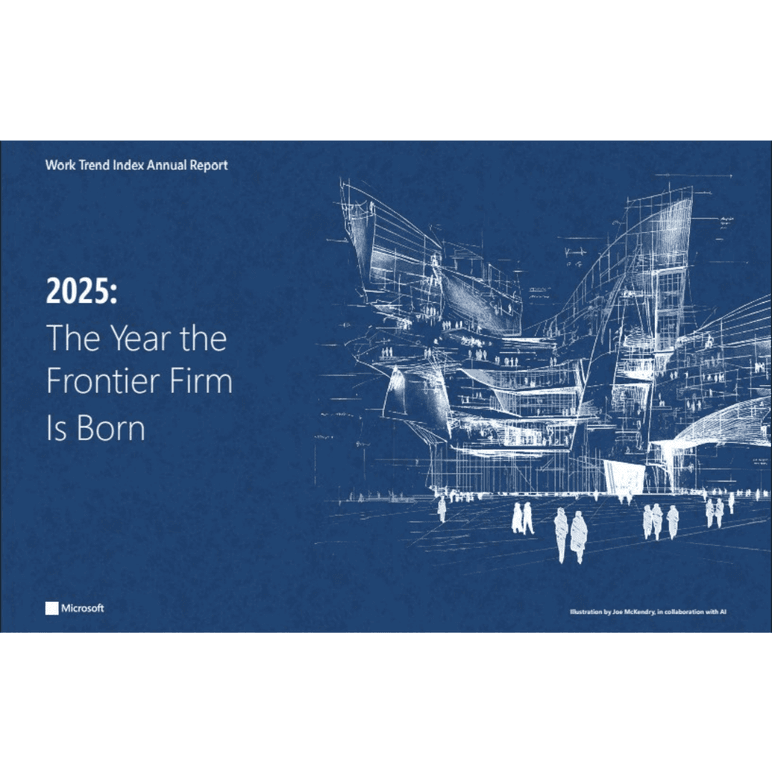
MIT Research Paper “Your Brain on ChatGPT: Accumulation of Cognitive Debt When Using an AI Assistant for Essay Writing Task”
You’ve likely seen alarming headlines claiming this MIT study proves "AI makes you dumb," which, by the way, the study never actually claimed. The viral narrative stems from a tiny final sample of just 9 students who struggled when they suddenly had to manage without AI. 9 people is far too small a group for general conclusions. This article unpacks the sensationalism, revealing the truth behind the hype."
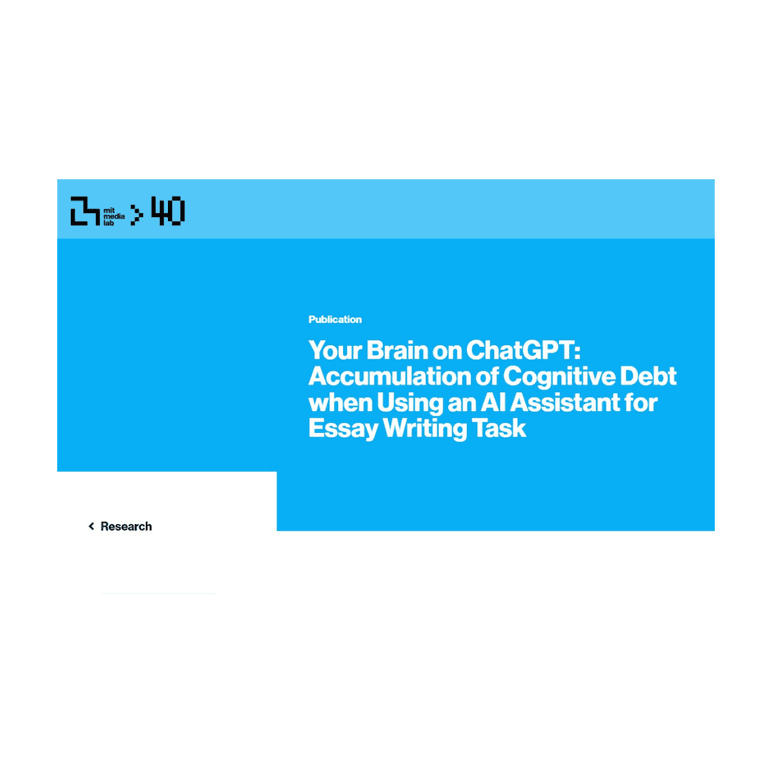
Schedule a call with us
If you'd like to understand a bit more about us, or find out how we can help solve your challenges, check out our team's availability and book in a call at a time that suits you.
Get in touch
If you'd prefer to chat over email, fill out your details below and we'll get back to you as soon as we can.